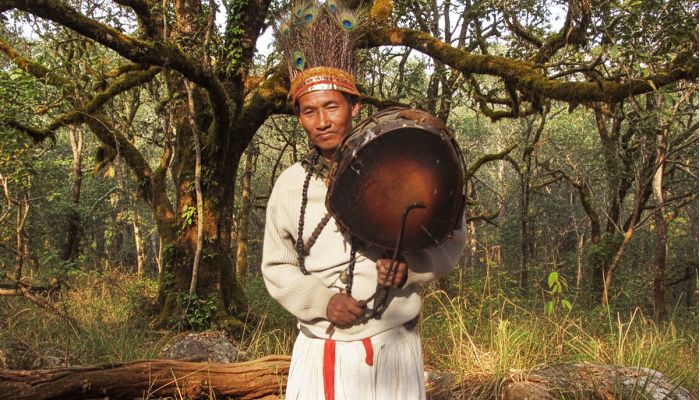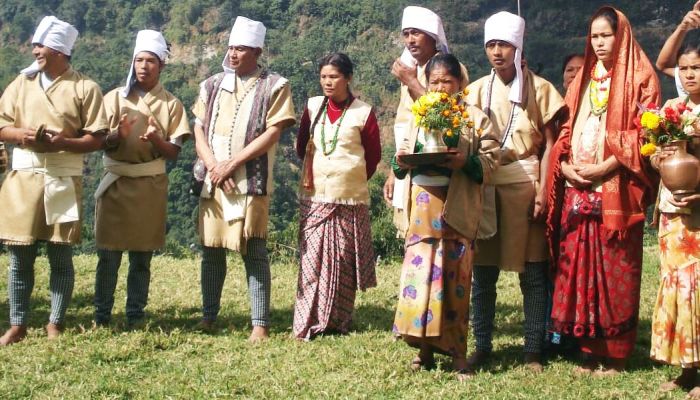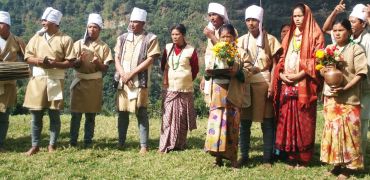Thami Culture
The Thami of Thangmi are an indigenous ethnic group primarily residing in the hilly regions of eastern Nepal, particularly in Ramechhap, Dolakha, and Sindhupalchok districts. A sizeable population of the Thami people can also be found in Sikkim, Darjeeling, and Assam in India. Traditionally, they have lived in small, close-knit communities where agriculture and livestock rearing form the backbone of daily life. The Thami maintain a rich cultural heritage, expressed through their distinctive language, rituals, and festivals. Their spiritual worldview blends animistic beliefs with influences from Hinduism and Tibetan Buddhism, centering on respect for nature, ancestral spirits, and local deities. Music, dance, and oral storytelling play vital roles in Thami culture, especially during harvest festivals, weddings, and funerary rites.
Balance and Belief in Thami Shamanism
Alongside the primordial deities, the Thami cosmology includes a rich pantheon of nature spirits that embody the elements, landscapes, and ancestral forces that shape their world.
Exploring the World of Thangmi people
The Thangmi’s religious life is characterized by a rich tapestry of rituals and ceremonies that blend shamanic traditions with Hindu elements. This syncretism is evident in their festivals, healing practices, and life-cycle rituals..


